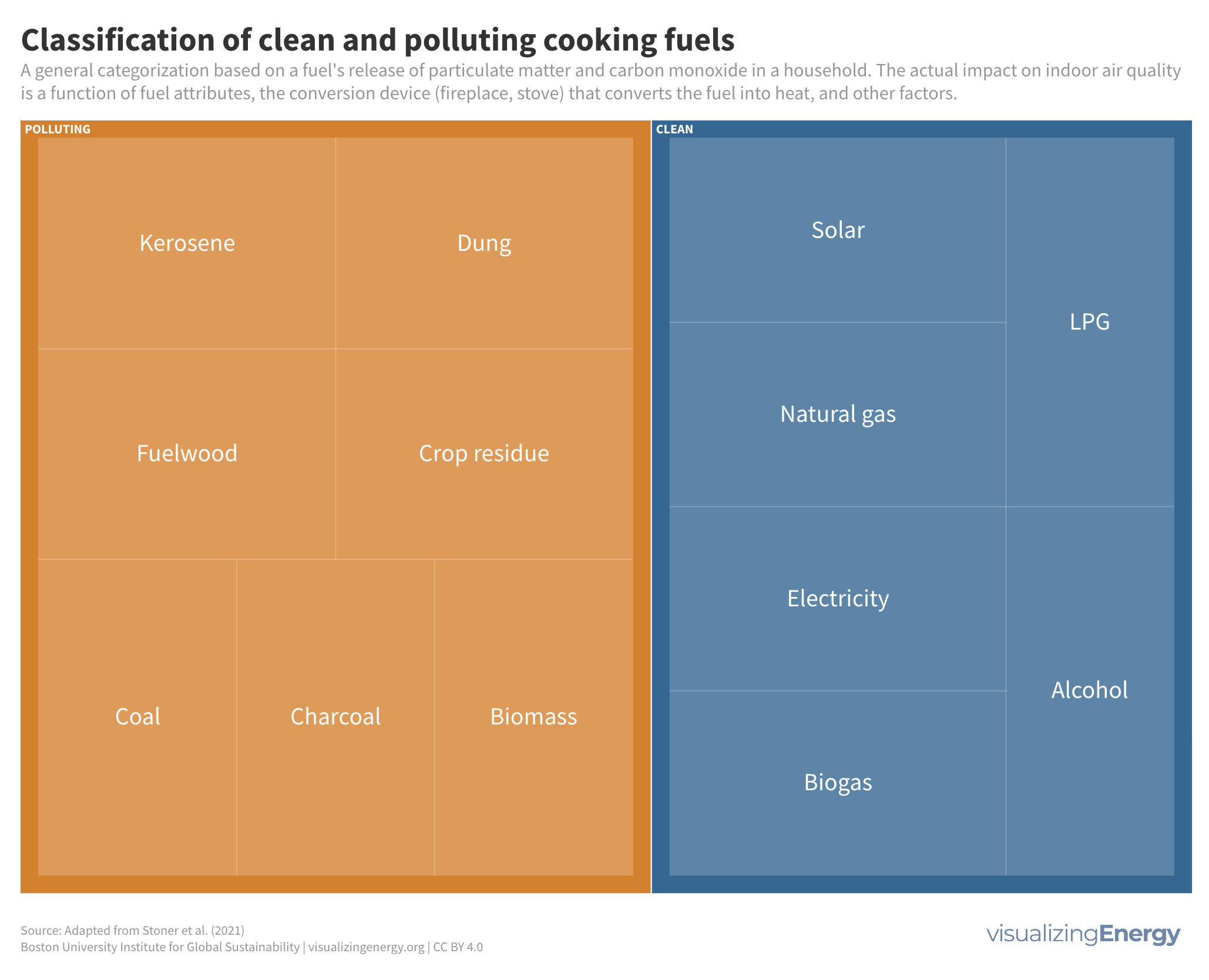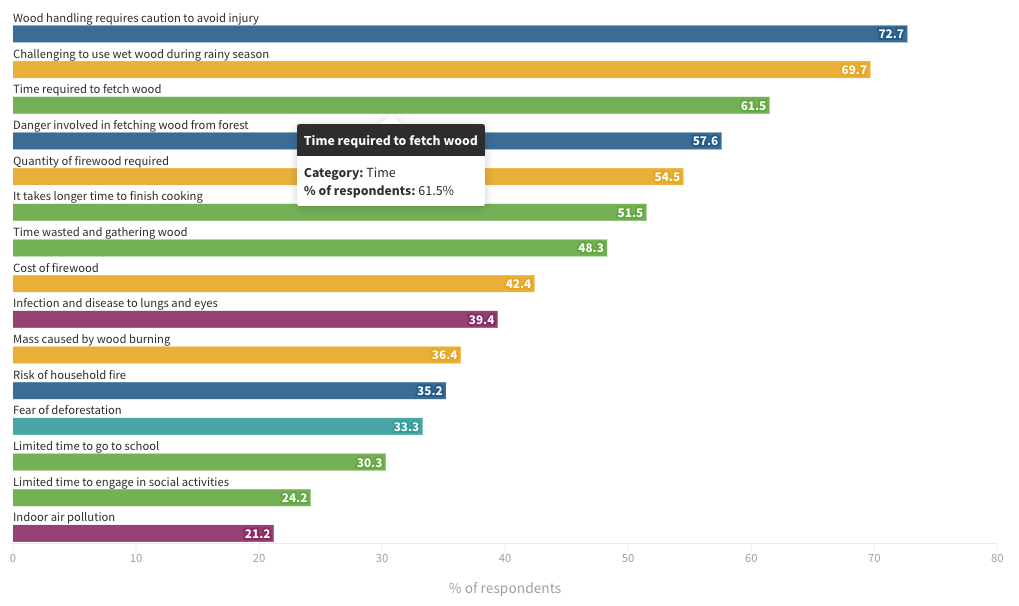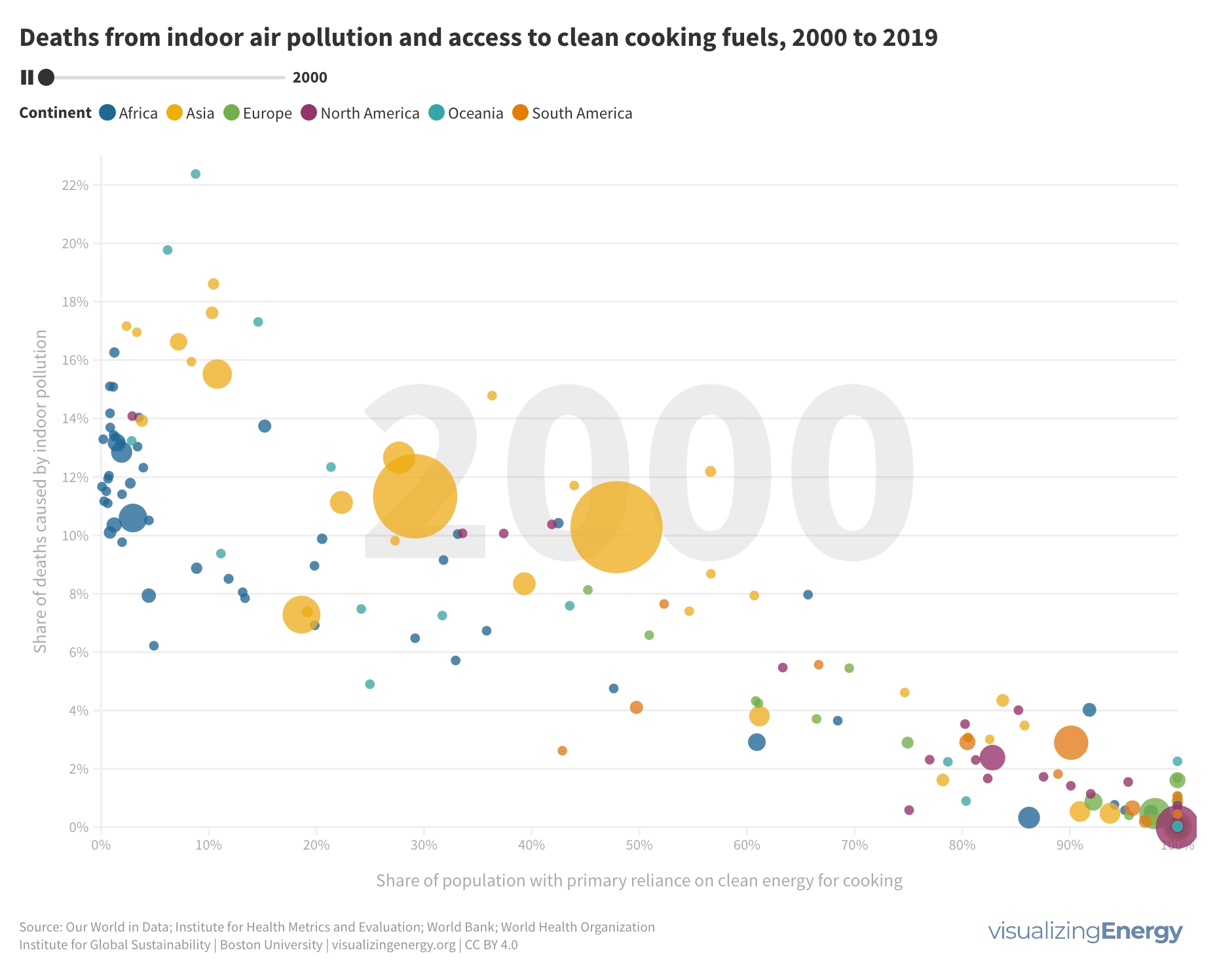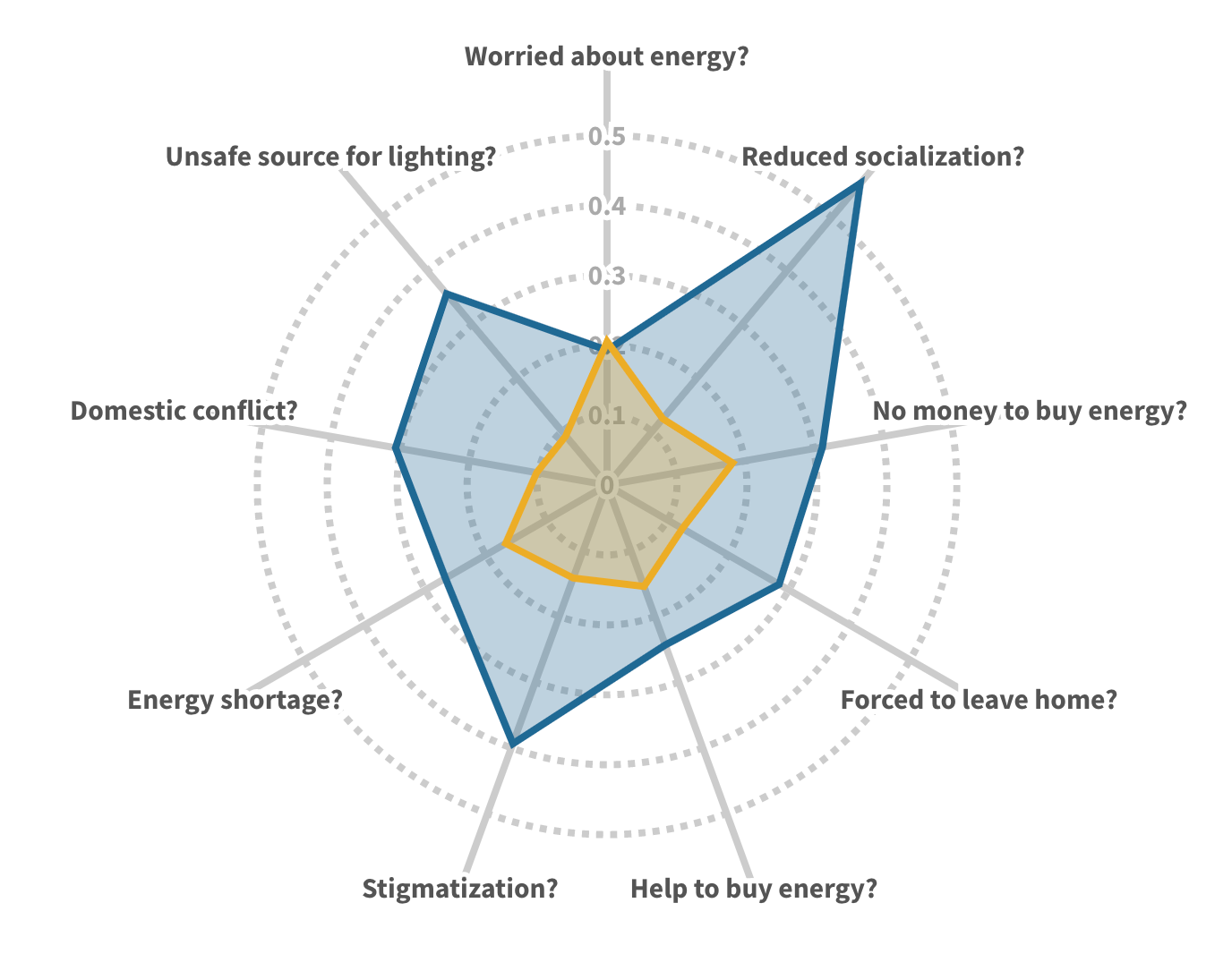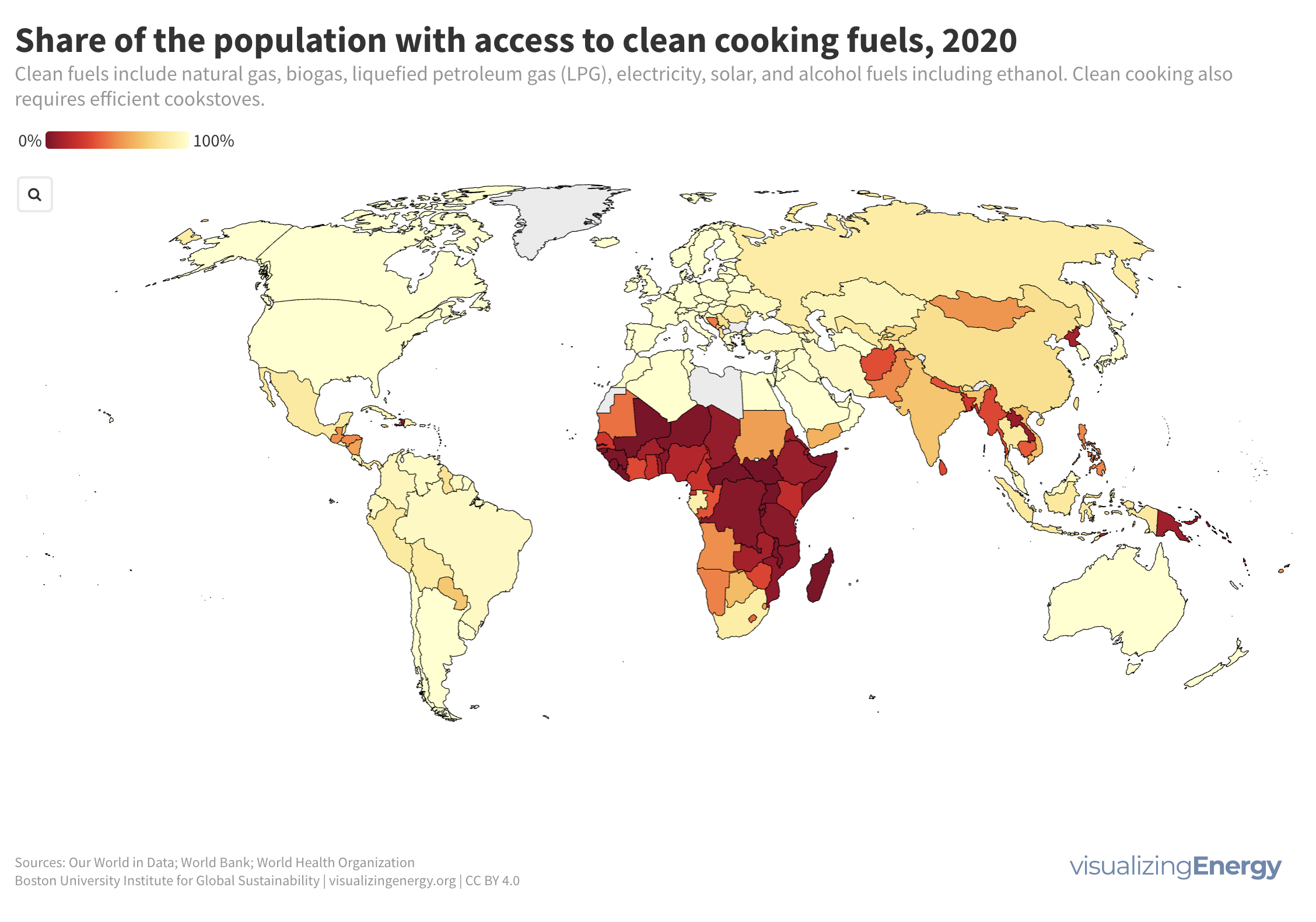
Where do people have access to clean cooking?
The transition to clean energy brings life-changing benefits like clean cooking services. Clean cooking uses gaseous fuels and electricity, reducing harmful emissions. However, 2.3 billion people still use polluting fuels, leading to millions of deaths annually. Access to clean cooking varies by country income and location. While global access has increased, challenges remain in many countries.

